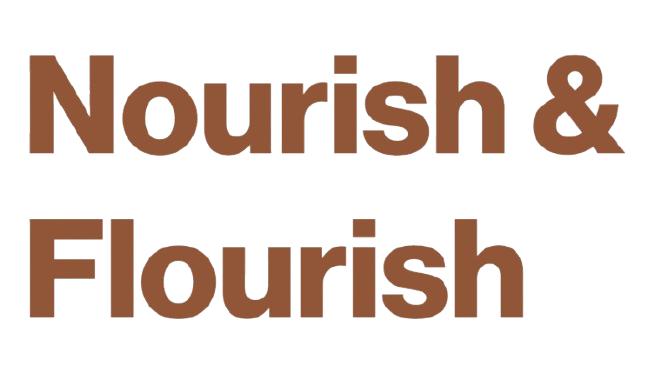Polyphenols are powerful plant compounds that play a multi-targeted role in cancer prevention and in reducing recurrence risk. They work by modulating genetic expression, inhibiting tumor growth, supporting detoxification, and boosting immune surveillance, without harming healthy cells—making them central to a functional medicine oncology approach.
🧬 How Polyphenols Help Prevent & Combat Cancer
✅ 1. Neutralize Oxidative Stress (DNA Protection)
- Polyphenols act as antioxidants, preventing DNA damage from free radicals—a known trigger for cancer mutations.
- They preserve genomic integrity and reduce oxidative burden from chemotherapy or radiation.
📌 Example: Quercetin, EGCG (green tea), resveratrol.
✅ 2. Regulate Cell Cycle & Induce Apoptosis
- Many polyphenols trigger programmed cancer cell death (apoptosis) and inhibit uncontrolled proliferation.
- They block key oncogenes and restore tumor suppressor gene activity.
📌 Example: Curcumin, ellagic acid, fisetin, sulforaphane.
✅ 3. Anti-Angiogenesis & Tumor Growth Inhibition
- Cancer cells hijack blood supply to grow. Polyphenols inhibit angiogenesis, cutting off tumor nutrition.
- They also slow or stop metastasis (cancer spread).
📌 Example: Resveratrol, apigenin, grape seed extract.
✅ 4. Reduce Chronic Inflammation (NF-κB Modulation)
- Chronic low-grade inflammation is a core driver of cancer.
- Polyphenols downregulate inflammatory genes (e.g., NF-κB, COX-2, IL-6, TNF-α) that fuel tumor growth.
📌 Example: Curcumin, pterostilbene, gingerol.
✅ 5. Modulate Estrogen & Hormone Detox (in Hormone-Sensitive Cancers)
- Polyphenols help detoxify excess estrogens and promote healthy estrogen metabolism (favoring 2-OH over 16-OH pathway).
- They support phase II liver detox and inhibit aromatase (which converts testosterone into estrogen).
📌 Example: Green tea catechins, resveratrol, rosemary, broccoli sulforaphane.
✅ 6. Support Gut Microbiome & Immune Defense
- Polyphenols feed beneficial gut bacteria, reducing carcinogenic byproducts (like LPS and secondary bile acids).
- They enhance gut-associated lymphoid tissue (GALT) and modulate systemic immune response.
📌 Example: Pomegranate, polyphenol-rich berries, and cocoa flavanols.
✅ 7. Epigenetic Modulation
- Polyphenols can silence oncogenes and activate tumor suppressor genes via epigenetic mechanisms (DNA methylation and histone modification).
📌 Example: EGCG, curcumin, sulforaphane, ellagic acid.
✅ 8. Protect Against Cancer Recurrence
- Polyphenols inhibit cancer stem cell pathways (e.g., Wnt/β-catenin, Notch, Hedgehog), which are often resistant to chemo and drive recurrence.
- They also support detox, immune surveillance, and reduce inflammation that may reactivate dormant cancer cells.
📌 Example: Fisetin, sulforaphane, luteolin.
🩺 Top Polyphenols with Anti-Cancer Effects
| Polyphenol | Sources | Cancer Focus |
|---|---|---|
| Curcumin | Turmeric | Colon, breast, pancreatic, prostate |
| Resveratrol | Red grapes, berries | Breast, colon, prostate, leukemia |
| EGCG | Green tea | Lung, breast, prostate, liver |
| Sulforaphane | Broccoli sprouts | Breast, prostate, GI cancers |
| Ellagic Acid | Pomegranate, raspberries | Cervical, colon, prostate |
| Quercetin | Onions, apples, capers | Lung, colon, brain |
| Apigenin | Parsley, chamomile, celery | Skin, breast, colon |
| Fisetin | Strawberries, apples, cucumbers | Bladder, colon, prostate |
| Luteolin | Thyme, rosemary, green peppers | Breast, lung, colon |
📊 Functional Medicine Strategies for Polyphenol Support in Cancer Care
🔹 Nutrition
- Colorful plant-rich diet: 8–10 servings/day of veggies and berries
- Organic & non-GMO to reduce toxin load
- Mediterranean or plant-forward ketogenic diets (depending on cancer type)
🔹 Supplementation (with practitioner guidance)
- Curcumin (Meriva® or BCM-95®): 500 mg 2x/day
- Green tea extract (EGCG): 400–800 mg/day
- Pomegranate extract: 500 mg/day
- Sulforaphane (TruBroc®): 10–20 mg/day
- Resveratrol/Pterostilbene: 100–250 mg/day
🔹 Lifestyle
- Intermittent fasting or time-restricted eating
- Stress reduction (vagal tone activation)
- Sleep hygiene (melatonin = anticancer support)
- Movement: walking, yoga, rebounding, strength training
- Detox: sauna, dry brushing, binders (if needed)
✅ Key Takeaways: How Polyphenols Protect Against Cancer
| Mechanism | Benefit |
|---|---|
| ↓ Inflammation & Oxidative Stress | Prevents DNA damage, tumor initiation |
| ↑ Apoptosis & Cell Regulation | Kills cancer cells, limits spread |
| ↓ Angiogenesis | Cuts off tumor blood supply |
| ↑ Detox & Estrogen Clearance | Hormone-sensitive cancer protection |
| ↓ Cancer Stem Cell Activity | Reduces recurrence risk |
| ↑ Immune Modulation | Enhances body’s ability to detect cancer |

Share: